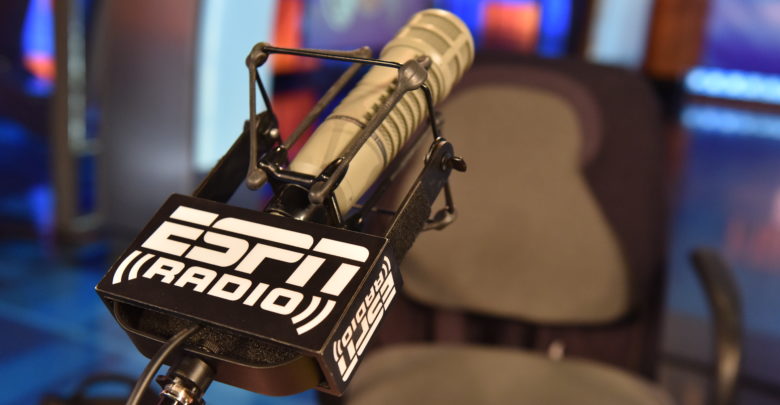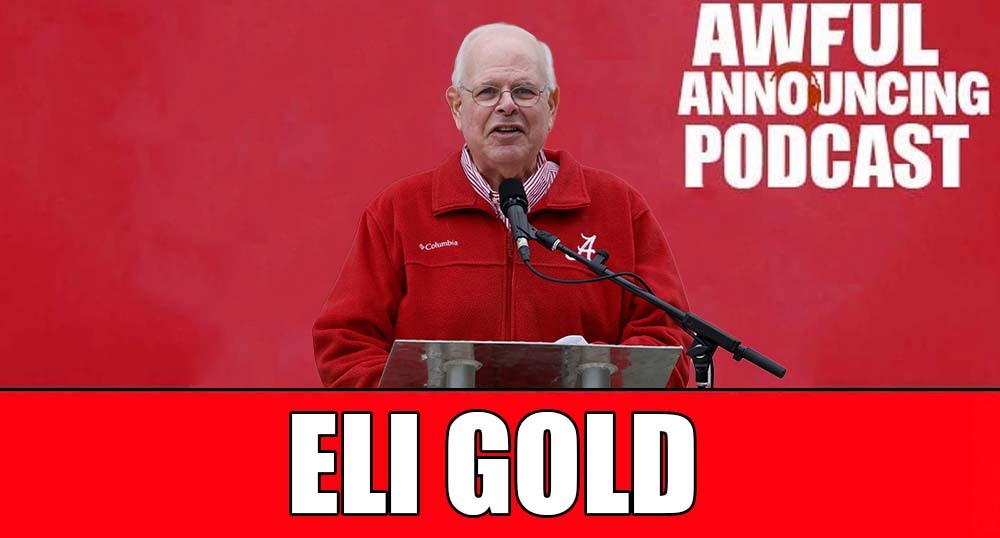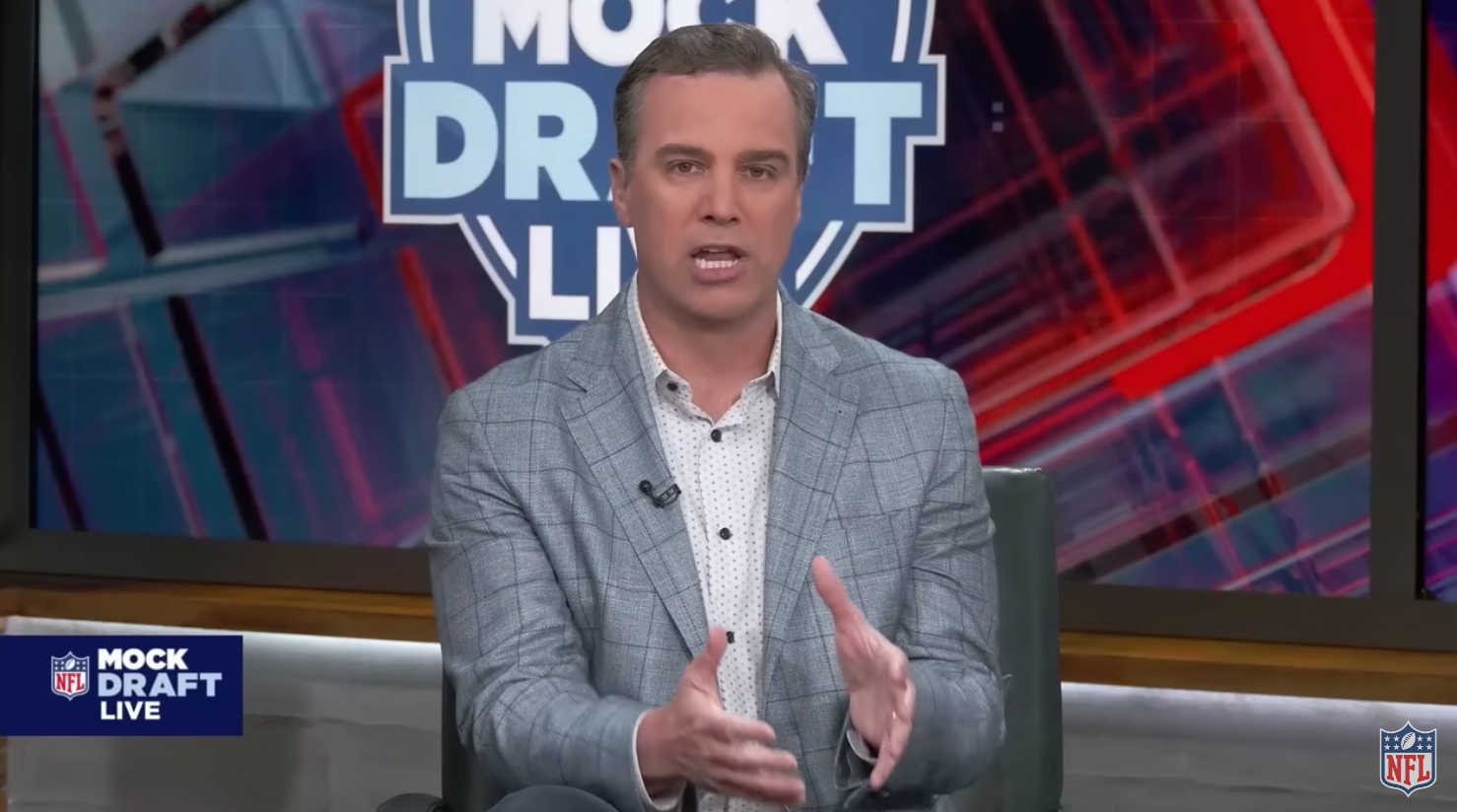When I worked at WEEI in Boston, it was always amusing to see how few people were actually listening to some of the biggest stars in the medium. “Mike & Mike,” Dan Le Batard and Scott Van Pelt were all raking in millions of dollars annually.
They were also drawing 0.1s and 0.2s.
That doesn’t tell the whole story, of course. All of these programs were simulcast on TV and syndicated on hundreds of radio stations across the country. Back in 2018, ESPN Radio podcasts were approaching 40 million monthly downloads, with Le Batard’s show leading the way.
But still, it was gratifying to know that after a big Patriots game, Boston sports fans listened to us, rather than Mike Golic or Stephen A. Smith.
That is the case across the country: ESPN Radio, and national sports talk radio in general, doesn’t draw any sort of audience in major markets with its own personalities. New York is the one exception, but that doesn’t count, because Michael Kay is drawing those listeners. (Kay was competitive with Mike Francesa at the end of his days and even beat WFAN in a ratings book, though it’s worth noting that he’s once again getting trounced.)
One of the primary reasons for ESPN Radio’s inability to succeed in big cities happens before the stations even hit the air. ESPN usually requires local affiliates to carry its national morning show, so they can tell advertisers they have a presence in New York, Los Angeles, Chicago and Boston. But the problem is, there isn’t a single Chicago sports fan on the planet who wants to listen to “Keyshawn, JWill and Max” talk about the Bears.
With no lead-in audience, ESPN Radio’s local programming, usually in the midday or afternoons, is dead on arrival.
The ratings futility is staggering. In LA, ESPN Radio can finish as low as 37th, and in Chicago, ESPN Radio tied for 16th in the latest book.
Mike Felger is probably the clearest real-person example of his phenomenon. The Boston sports yakker floundered as a host on Boston’s ESPN Radio 890. Then he moved to an all-local station with an FM signal, 98.5 The Sports Hub, and beat WEEI in just two years. (These days, “Felger & Mazz” draws roughly six times the audience as WEEI’s afternoon offering in the coveted male 25-54 years old demo. Their numbers are unparalleled.)
With that history in mind, it isn’t surprising to see ESPN Radio fall victim to Bristol’s latest round of layoffs. Multiple audio execs were terminated this week, joining a long list of departing figures from ESPN Radio’s heyday.
With a dizzying amount of lineup switches in recent years, ESPN Radio appears to be on Disney’s back burner.
ESPN Radio got hit hard. Another dedicated person let go. https://t.co/0uaLAUevAg
— Andrew Marchand (@AndrewMarchand) April 26, 2023
As radio consultant Jason Barrett outlines, ESPN Radio isn’t alone. CBS Sports Radio experiences the same roadblocks, and NBC shut down its national sports radio brand in 2018. FOX Sports Radio seems to be in the best shape, though they pack their lineup with Cowherd and Dan Patrick—two stars with big followings.
But Fox Sports Radio is the exception. Outside of Chris Russo, who headlines his own SiriusXM station, almost every national sports talker with an audience hosts their own podcast—and makes an insane amount of money.
“The Dan Le Batard Show with Stugotz” is the No. 1 sports podcast on Apple and No. 28 podcast overall, according to Chartable. Two years ago, DraftKings paid Le Batard $50 million to distribute his show through 2024.
Ryen Russillo, whose ESPN radio show with Van Pelt enjoyed strong cult-like following, has been a podcasting hit at The Ringer for years. Chartable says “The Ryen Russillo Podcast” is No. 13 in sports right now.
Bill Simmons, who often brings Russillo on his pod, is No. 2 in sports.
There was a time when sports fans in mid-sized cities were starved for sports talk. As a result, they were content to turn on any show. They were listening for the brand, not the personality.
That’s not how it works anymore. We live in an à la carte media environment, and consumers choose their own content. Barstool’s “Pardon My Take” can be heard in market No. 5 (Dallas) and market No. 149 (Sioux City).
The whole idea of national sports radio is anathema to the concept of destination programming. The content is supposed to be boilerplate, because hosts are expected to placate listeners across the country.
But as the old folly goes: “Please all, and you will please none.”
Sadly, ESPN Radio, and other national sports talk brands, are in a losing race against time.







